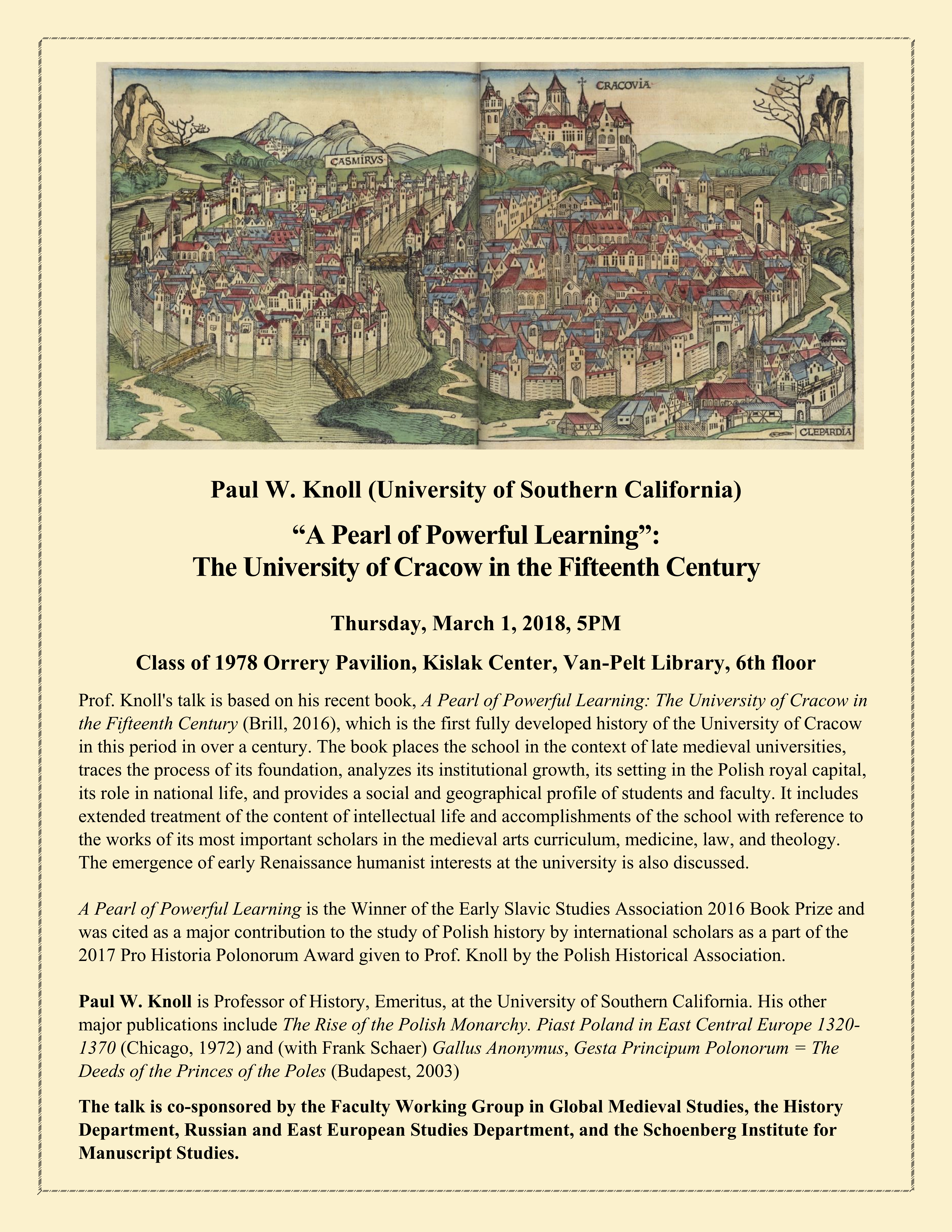Event

“A Pearl of Powerful Learning”: The University of Cracow in the Fifteenth Century
Paul W. Knoll, University of Southern California
DATE: Thursday, March 1, 2018
TIME: 5:00pm
LOCATION: Class of 1978 Orerry Pavilion, Kislak Center, Van-Pelt
A Pearl of Powerful Learning is the Winner of the Early Slavic Studies Association 2016 Book Prize and was cited as a major contribution to the study of Polish history by international scholars as a part of the 2017 Pro Historia Polonorum Award given to Prof. Knoll by the Polish Historical Association.
Paul W. Knoll is Professor of History, Emeritus, at the University of Southern California. His other major publications include The Rise of the Polish Monarchy. Piast Poland in East Central Europe 1320-1370 (Chicago, 1972) and (with Frank Schaer) Gallus Anonymus, Gesta Principum Polonorum = The Deeds of the Princes of the Poles (Budapest, 2003)
The talk is co-sponsored by the Faculty Working Group in Global Medieval Studies, the History Department, Russian and East European Studies Department, and the Schoenberg Institute for Manuscript Studies.
